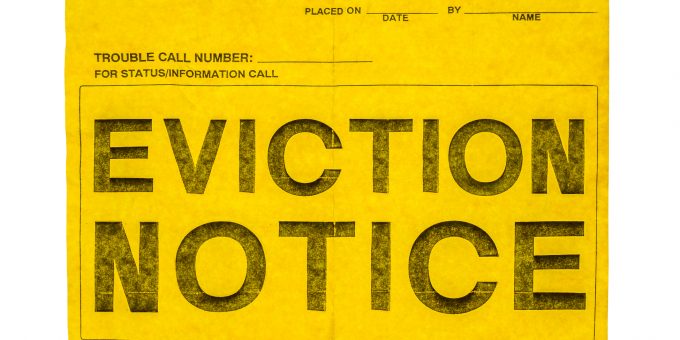
iStockPhoto.com // mrdoomits
Courting Eviction
As the cost of living, and housing in particular, skyrockets, more and more people face eviction. Unsurprisingly, U.S. eviction courts—a specific form of civil legal process for adjudicating disputes over tenancy—are experiencing record case numbers. While the legal system seeks fair and just representation, court records show that landlords win eviction cases at an overwhelming—and increasing—rate. Why is this? In a new study published in City & Community, Isaiah Fleming-Klink and colleagues argue that, in an overburdened court system, a series of processes and procedures have emerged that “systematically disadvantage” tenants.
The study combines over a year of ethnographic observations from a Washington, D.C. evictions court with analysis of administrative records to identify four specific forms of disadvantage that tenants experience throughout the eviction court process. First, the unwritten rules of the courtroom—where to stand, who to talk to—are unclear to tenants experiencing the legal system for the first time. This is especially true for tenants with disabilities. Second, tenancy laws are often applied inconsistently, benefitting landlords who have access to more resources to understand and respond appropriately. Third, eviction courts increasingly rely on “shadow procedures,” like consent judgments and settlement agreements, to expedite cases. These almost unanimously favor landlords. Finally, landlords and their lawyers, who are often far more familiar with the court system than are tenants, leverage their relationships with courtroom actors, including judges and administrative clerks, to advance their interests.While evictions are a bureaucratic hassle for landlords, they can be immensely disruptive and traumatic events for tenants. So, too, is the evictions court process, which disadvantages the tenant at every step. The authors are careful to point out that many of these processes are not intentional, but the unintended consequences of an under-resourced and overburdened system. Regardless, for a population already living in precarity, the compounding effects of unequal access to legal representation and due process has potential to reinforce existing inequalities in the rental market and beyond.
